- April 5; Sad Song - Advision studio
- April 5; This Is My House (But Nobody Calls) - Advision studio
- July 5; How Can We Hang On To A Dream (first version) Advision Studio
- July 15; How Can We Hang On To A Dream (second version) Decca Studios
- August 18; Jago & Jilly - Decca Studios
- August 19; We're Broken - Decca Studios
- August ?; Send The People Away (People Gotta Go)
- September 8; This Is My House (But Nobody Calls) (re-make)
- September 8; Life's Not Life - Decca Studios
- September 8; He Can Win - Decca Studios
- September 8; Boulevard De La Madeleine - Decca Studios
- September 8; Red Wine - Decca Studios
- September 8; I Really Haven't Got The Time (original version) Decca Studios
In search of the Lost Moody Blues Album!
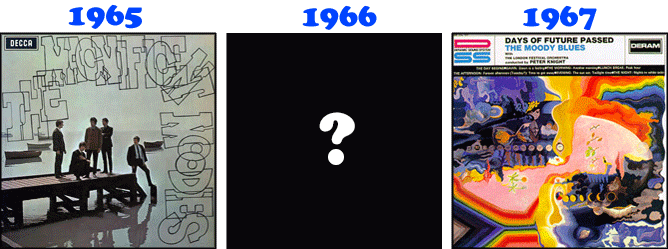
The year 2015 marked the 50th Anniversary of the release of the first record album by Birmingham's world famous rock group The Moody Blues. In celebration of this historic event, Esoteric Recordings has re-issued this album as a high-quality CD package available in "single" or "double disc box set" formats to include many bonus tracks.
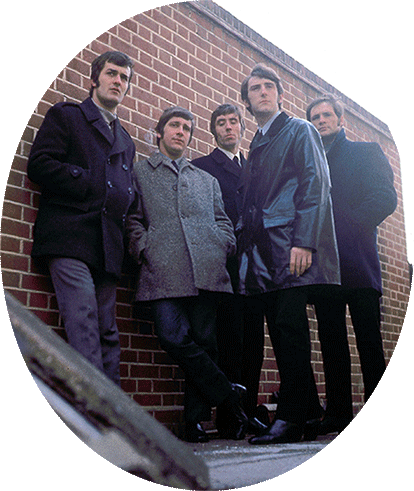
Esoteric's "The Magnificent Moodies" double-CD box set cannot be overestimated in its "magnificence" including value for money. As if 56 mostly previously-unreleased tracks (including BBC sessions and alternate demo versions) weren't enough, you also get a 24 page booklet crammed with recording details, rare photos, and story of the band as expertly researched by Mark Powell.
Not only that, you also get a group picture poster with contemporary newspaper and magazine articles, plus three promotional collector cards. It's the best re-issue of any 1960s Brum Beat group in both quality and quantity that I know of.
As a group that became world famous during the 1960s and 70s for their finely crafted concept albums (also known as Long Player "LPs" to those of us over age fifty), many fans regard 1967's orchestrated masterpiece "Days of Future Passed" as the group's first "proper" album. Others of course will recognize the original line-up's "Magnificent Moodies" from 1965 as their first and quite rightly so although it gave little indication musically of what was to come.

In the beginning, The Moody Blues line-up consisted of vocalist/guitarist Denny Laine, vocalist Ray Thomas, pianist Mike Pinder, drummer Graeme Edge, and bass guitarist Clint Warwick. Clint left in mid 1966 to be replaced briefly by Rod Clark who in turn was replaced by John Lodge. Rod went on to join another well-known Brum group The Rockin' Berries. Denny Laine had also left before the end of that year and was replaced by Justin Hayward.
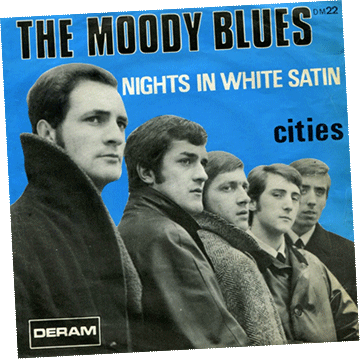
Some fans will argue it was a different band who recorded Days of Future Passed and the albums that followed. To put things in perspective though, its amazing to think the first four Beatles albums and 'Sgt. Pepper's Lonely Hearts Club Band' were recorded by the same group. Pop music was evolving incredibly fast during the mid 1960s which makes two years between albums seem a long time indeed!
The first Moodies album, issued mainly to capitalize on the huge international success of their second single 'Go Now' in a market still dominated by hit singles rather than album sales, was a mix of music styles based around R&B, Soul, and the current popular "Mersey Sound". The production was rather rushed and the content (as per the first Beatles album) drew heavily on material the band were performing on-stage at that time. Released in July 1965 and preceded by an EP, only four tracks on the LP were composed by the group themselves.
"I felt that we should cut back on the live work, and go into the studio to make another album and perhaps develop our music a little more"
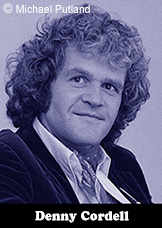
Amazingly, evidence has come to light that the original line-up of The Moody Blues had started recording sessions during the summer of 1966 for a proposed second album that was never issued. Under direction of their current producer Denny Cordell (who would go on to have much success with The Move, Procol Harum, and Joe Cocker), the work on this was well underway with at least ten tracks started or completed.
The Moody Blues' contract with Decca required them to record enough songs for a minimum number of singles and albums. Despite unpredictable changes taking place within the group by the summer of 1966, they were still bound by this contract. Denny Laine said; "I felt that we should cut back on the live work, and go into the studio to make another album and perhaps develop our music a little more".
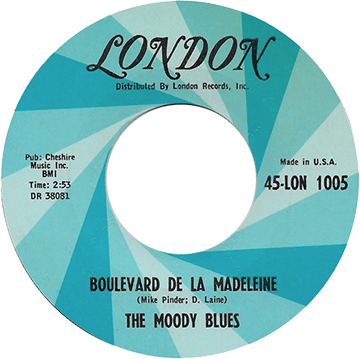
The second "bonus" disc of Esoteric's The Magnificent Moodies box set includes these previously unheard Denny Cordell session recordings - all newly mixed from the original four-track master tapes.
Obviously hoping to get some return from their investment, Decca issued a few of these recordings as A and B-sides of singles between 1966 and 1967. Some such as 'Boulevard De La Madeleine' are quite exceptional and show the band moving away from their familiar musical format.
A review at the time described 'Boulevard De La Madeleine' as; "The introduction sounds like French cafe music, complete with accordion. An altogether curious performance." This track was apparently also considered for the B-side of the Moodie's 'Fly Me High' single in early 1967 - a collector's dream to be sure if a test pressing ever turned up!
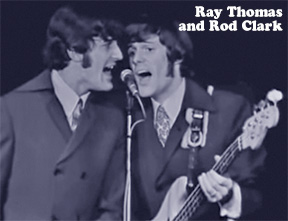
Mike Pinder and Denny Laine could be considered the "Lennon and McCartney" of the group by this time with all the original titles composed by them. Clint Warwick left the Moodies halfway through the Denny Cordell sessions and so we now (thanks to Mark Powell's research) have proof the revised line-up recorded together with Rod Clark on bass guitar and vocal. These sessions took place in London at Advision Studio and the Decca Studios in West Hampstead.
April 5th, 1966 marked the beginning of the lost Denny Cordell sessions with the recording of two original songs titled 'This Is My House (But Nobody Calls)', and a previously unreleased composition called 'Sad Song'. The former, although lyrically captivating, was issued as a single B-side, and the latter, unheard until now is a wonderful composition featuring Denny's characteristic "mournful" lead vocal and tasteful flute playing from Ray Thomas.
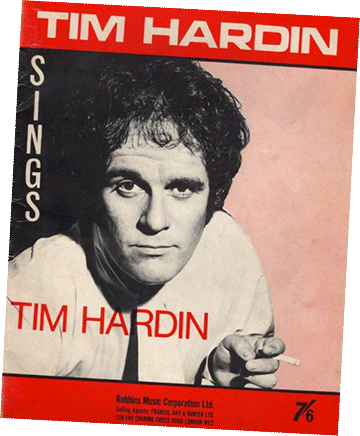
On July 5th, recording continued with the only "cover" from the Denny Cordell sessions. This was Tim Hardin's 'How Can We Hang On To A Dream' of which two versions exist and are included in this set.
The first version has Clint Warwick on bass guitar with the recording obviously unfinished as it lacks the extra guitar, flute, and vocals overdubbed onto a second version recorded on July 15th with Clint's replacement Rod Clark. Rod had previously played in "Carter-Lewis and The Southerners" alongside future Led Zeppelin guitarist Jimmy Page.
Another great unreleased Pinder/Laine recording from the summer 1966 sessions is titled 'Jago & Jilly' which is based around a waltz tempo - seemingly popular with the group at the time. Lyrically, it's a love song sung by Denny who does a fine job on the vocal as well as supplying intricate guitar work.
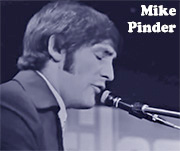
Also previously-unreleased and issued here for the first time is a fantastic driving Pinder/Laine track prophetically titled 'Were Broken'. This one is distinctive for its distorted 'fuzz' guitar sound similar to what The Spencer Davis Group used for 'Keep On Running' issued the previous year. The inventive drumming played by Graeme Edge sounds superior on these newly-mixed recordings when compared to contemporary releases that often had them "buried" towards the back of the mix.
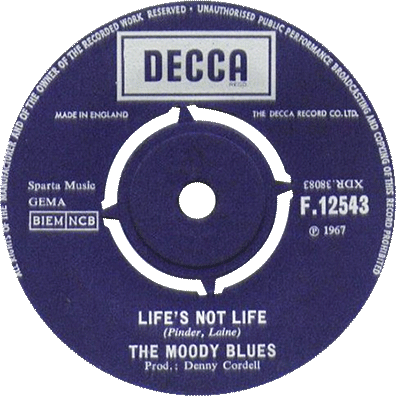
The Moody Blues' final and exceptionally productive recording session with Denny Cordell also yielded their 7th Decca single A and B-side titled 'Life's Not Life' and 'He Can Win' respectively. While neither of these tracks were likely to set the record charts on fire, fans of the original line-up will appreciate these recordings both in the quality of performance and arrangement.
The band included Life's Not Life in their final live performances with Rod Clark and before Denny Laine left. Issued in January 1967 by which time the group's future was uncertain, this single seemed to have been barely promoted by Decca if at all.
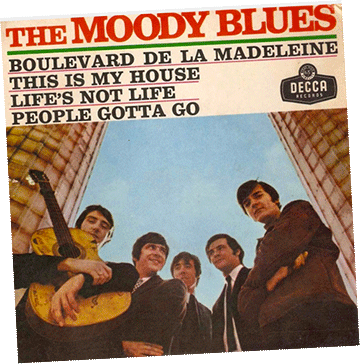
A song that was for many years the rarest of Moody Blues records titled 'Send The People Away (People Gotta Go)' was for many decades only available on a difficult to obtain French-only EP from 1966. While this recording (with improved audio quality) is included in the CD set, there's still little known about the track other than it likely originated from the Denny Cordell sessions.
The previously unreleased 'Red Wine' is a rather driving number that was included in the Moodies stage show prior to the original line up disbanding according to Tony Brown's interview with Rod Clarke. It sounds like Ray Thomas may have handled the lead vocal on this one.
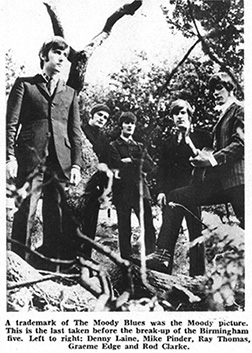
Similarly, Mike Pinder takes the lead on his own composition 'I Really Haven't Got The Time' of which the first known recorded version is also presented here and it pre-dates the recording most fans will be familiar with.
If there's any one song that can be said to link the "original" and "classic" line-up of the Moody Blues together it would have to be Mike Pinder's 'I Really Haven't Got The Time'. This energetic piano-driven number was re-recorded in 1967 for the B-side of Justin Hayward's 'Fly Me High' single - the first by the "classic" line-up produced by Tony Clarke.
Locked in the vaults for 50 years, we can now hear this first recorded version of I Haven't Really Got The Time from Denny Cordell's final session with the band from September 1966. It was only a short time now before Mike Pinder's purchase of a second-hand Mellotron from Birmingham's Fort Dunlop Tyres factory social club would form a big part of the Moody Blues sound.
Sadly, the proposed 1966 follow-up to the first "Magnificent Moodies" album was to remain unfinished and unissued. Fifty years later, we can now hear these lost tracks for the first time and wonder what might have been.
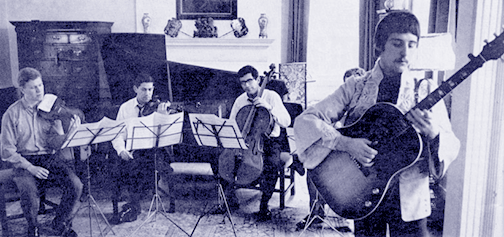
So, if the original Moody Blues line-up had stayed together, would the group have become a creative force to be reckoned with? Let's face it, just about every recording group was influenced in 1967 by The Beatles ground-breaking 'Sgt. Pepper's Lonely Hearts Club Band' album. Denny Cordell wasn't adverse to adding orchestral backing on recordings, and considering Denny Laine formed 'The Electric String Band' to include a genuine string quartette, then a concept similar to "Days of Future Passed" by the original line-up does not seem out of the question.
What we do know is that compared to creative milestones set in 1966 by The Beatles "Rubber Soul" and "Revolver", or The Beach Boys "Pet Sounds", the lost Moody Blues album would have emerged as more of an "evolution" than "revolution". At the very least, it would have helped bridge an enormous gap in their transition from an energetic R&B band into the ultimate progressive "cosmic philosophers" that many fans later imagined them to be.
The Moody Blues/Denny Cordell Sessions 1966
For details and complete track-listing of 'The Magnificent Moodies' and its available formats, visit the Esoteric Recordings web site at esotericrecordings.com